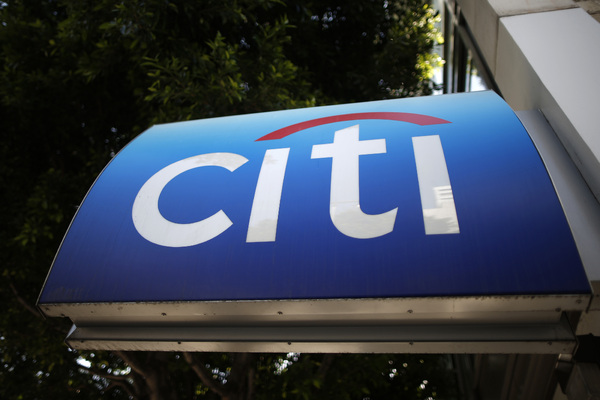Standing out from the crowd

Phillip Khan-Panni at Toastmasters International offers some thoughts on how to make what you say about your business stand out
The most frequently asked question in business is also the most widely misunderstood. And because it is misunderstood, most individuals and most businesses give the wrong answer.
That question is, “What do you do?” Most think it means, “Tell me what you do for a living,” or “What product/service does your business provide”. In fact, it means, “Tell me why I should find you interesting.”
A very high proportion of business presentations fail because they tell the wrong story. They talk about what they do, not about the benefit they offer. Similarly, most elevator pitches fail for the same reason.
So, let’s see how some people get it wrong, and you can decide if that applies to you as well.
Second class?
Recently I reviewed the CV of a young man in his mid-20s. As it stands, the CV will fail. It follows an old-fashioned format, opening with his education – second class honours, averaging 67 % across all courses. Then his A levels and GCSEs.
Whatever the intention, the term “second class” is a definite turn-off. He’s telling the world he’s an average guy, fresh out of university, second class, 67%. Unexceptional. Why look any further? As a manager you’re most likely to drop it into the bin.
In reality, this is who he is:
Young achiever with a 2:1 in Economics and Political Science and a track record of excellence in a range of sports. Numerate market researcher and proactive networker with conversational Spanish and an eclectic mix of work experience, including insurance, marketing and dealing with the public.
Personal attributes include advanced communication and social skills, admirable work ethic and exceptional integrity. That’s who he is. He’s been saying all the wrong things about himself.
Added Value
Margaret is someone quite senior in her industry and had been badly shaken by being made redundant. All her job applications were being rejected.
When asked in a mock interview, “Tell me about yourself” she ran through her job history. Wrong story. Interviewers don’t care where you’ve been. They prefer to hear where you can take them. They want to hear how they will benefit from taking you on.
I showed her the picture of two men holding up placards. One stated, “Hire me. These are my qualifications.” The other stated, “Down but not out.” When asked which person she found the more interesting she picked the second one.
Based on her understanding of the point in that picture, she came to realise her own Added Value. She began recognizing what she brought to the table. With a rewritten CV and coaching in handling an interview she sent the CV to six companies. She got five interviews and four job offers. All because she told the *right* story and believed in her own Added Value.
It’s not enough to tell an attractive story. You need to believe what it says about you.
John Sim the artist
25 years ago, in St Ives, I met a brilliant artist called John Sim. He was painting an underwater scene depicting a sunken man-o’-war with a couple of divers exploring the wreck. He called it The Final Resting Place. Someone had upset him by saying no man-o’-war had ever sunk complete, as he was showing it. But he did some research and discovered that The Royal George had done just that.
His leaflet promoting the new painting, The Final Resting Place suggested it was simply about a ship that sank. It’s a literal description. However, The Royal George is about the valiant men who went down with their ship. It’s a better story. His leaflet was redesigned with the headline, “Toll for the brave, the brave that are no more” (a quote from the poem by William Cowper). A much more evocative story.
Take a close look at yourself
Take a close look at the way you talk about yourself. Is it linear, it is formulaic, is it just plain ordinary? And is that who you really are? Are you defined by what you do or by your Added Value?
Here are a few words of advice:
- Identify what would induce people to deal with you and not with others
- What is your Added Value?
- What “The something or other" can you call yourself?
- Don’t be linear (this, then that, then the next thing)
- Avoid using negative terms about yourself
- Above all, don’t define yourself by your job title. What’s the benefit of what you do?
Find out what makes you distinctive, and how you add value to the group you are in. And add something evocative to enhance your personal story. What is it about yourself that allows you to call yourself “The” something or other? The same lessons apply when you are talking about your business. It’s a good starting point for the right story.
Phillip Khan-Panni is a member of Toastmasters International, a not-for-profit organisation that has provided communication and leadership skills since 1924 through a worldwide network of clubs. There are more than 400 clubs and 10,000 members in the UK and Ireland. To find your nearest club, visit www.toastmasters.org
Main image courtesy of iStockPhoto.com

Business Reporter Team
Most Viewed
Winston House, 3rd Floor, Units 306-309, 2-4 Dollis Park, London, N3 1HF
23-29 Hendon Lane, London, N3 1RT
020 8349 4363
© 2024, Lyonsdown Limited. Business Reporter® is a registered trademark of Lyonsdown Ltd. VAT registration number: 830519543





